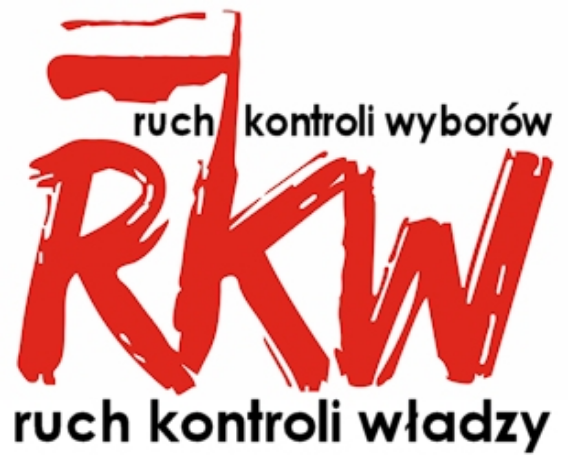elektroniczne podpisywanie petycji:
Siedziba Biura Instytucji Demokratycznych i Praw Człowieka OBWE w Warszawie:
tu należy wysyłać masowo maile i listy domagające się poważnego uczestnictwa obserwatorów OBWE w wyborach 2015 roku szczególnie po fałszerstwach z jakimi mieliśmy do czynienia w roku 2014
Aleje Ujazdowskie 19
00-557 Warszawa
tel. (0-22) 520 06 07
fax. (0-22) 520 06 05
e-mail: office@odihr.osce.waw.pl
kopię należałoby skierować także na kontakt na stronę oficjalną: www.osce.org
http://wpolityce.pl/polityka/233543-obwe-bedzie-obserwowac-wybory-prezydenckie
OBWE będzie obserwować wybory prezydenckie

Wypełniając zobowiązania przyjęte w ramach Organizacji Bezpieczeństwa i Współpracy w Europie, 11 lutego 2015 r. Polska wystosowała oficjalne zaproszenie do obserwacji nadchodzących wyborów prezydenckich, które odbędą się 10 maja br.
— poinformowało w czwartek biuro prasowe MSZ w komunikacie.
MSZ przypomina, że zgodnie z wieloletnią praktyką, organizacją obserwacji wyborów z ramienia OBWE zajmuje się Biuro Instytucji Demokratycznych i Praw Człowieka (ODIHR), z siedzibą w Warszawie.
Zaproszenie jest wyrazem uznania dla efektywności, doświadczenia i obiektywizmu ODIHR w zakresie obserwacji wyborów, jak również wynika z przekonania, że proces wyborczy powinien być transparentny i otwarty na ew. oceny i rekomendacje. W gestii ODIHR pozostaje decyzja o przeprowadzeniu obserwacji, jej formie i zakresie
— tłumaczy ministerstwo.
To jest zupełnie standardowa procedura. Wysyłamy zaproszenie, a OBWE podejmuje decyzję w sprawie obserwacji. To świadczy o naszym szacunku dla wartości demokratycznych i wysokiej ocenie prac OBWE. Od jakiegoś czasu podobna sytuacja miała miejsce przed każdymi wyborami
— powiedział PAP rzecznik MSZ Marcin Wojciechowski.
Zobowiązanie do umożliwienia obserwacji wyborów wynika z szeregu dokumentów przyjętych przez OBWE, w tym Dokumentu Kopenhaskiego z 1990 r. Uzgodniono w nim m.in., że państwa uczestniczące uznają, iż obecność obserwatorów, zarówno lokalnych jak i międzynarodowych, wzmacnia proces wyborczy i w związku z tym będą zapraszać do obserwacji wyborów odbywających się na szczeblu krajowym przedstawicieli zainteresowanych państw oraz stosownych instytucji i organizacji.
W ostatnich latach OBWE obserwowała m.in. wybory parlamentarne w 2007 i 2011 roku, organizacja była też zaproszona do obserwowania wyborów prezydenckich w 2010 roku.
PAP/mall

autor: Zespół wPolityce.pl
—————————————————————————————–
Warszawa, 13 marca 2015 r.
Mr Michael Georg Link
Director of the Office for Democratic Institutions and Human Rights – ODIHR
Organization for Security and Co-operation in Europe
Director du Bureau des institutions démocratiques et des droits de l’homme (BIDDH)
Organisation pour la sécurité et la coopération en Europe – OSCE
Ul. Miodowa 10
00-251 Warsaw
Election Control Movement calls on the Office for Democratic Institutions and Human Rights, which examines the extent to which the elections respect the fundamental freedoms, to send observers to the presidential and parliamentary elections in Poland in the number of at least several hundred people. Customary sending of a few people to the National Electoral Commission will not be enough, as this was demonstrated in the local elections, which in the West would be considered illegal.
Taking into consideration, that:
1. Forgery and irregularities are massive at all levels – from the polling stations through the districts, to the nationwide results and information system; at polling stations there were numerous falsifications and even buying of votes, which was described by the press,
2. NEC needed four months, since the local government elections in November 2014, to publish the full results. The National Electoral Commission also refuses to disclose all (more than 27 thousand.) district protocols,
3. The courts refuse to re-count the 5.2 million votes deemed invalid, even though the average for the whole country of declared invalid votes accounted for more than 9 per cent. And in the case of elections to regional councils declared invalid votes exceeded 17 percent. (In 2010 – 12 percent.),
4. Nearly 1,500 protests were submitted at the polling stations, of which courts have adjudicated only a few, in general ignoring the rest without taking of evidence. Especially in Silesia, the court found „disappearance” of 130 thousand votes as irrelevant and dismissed the protest without considering of the evidence in the case and not deciding which of the two signed by the Provincial Electoral Commission is real. In this way, the courts have prevented detection and proving of the election fraud,
5. Mrs. Dorothy Stanczyk, a member of the Provincial Electoral Commission in Katowice, who revealed the disappearance of 130 thousand votes in Silesia, together with her family was threatened with beatings and feared for her life,
6. The NEC does not impose and enforce an explicit obligation to check the cards and the counting of votes by the entire committee, but allows checking of ballots and counting votes separately by each member of the electoral commission,
7. Counting System is currently to be overseen by the national counterintelligence i.e. the Internal Security Agency. This is an example unparalleled in the Union, that in the counting of votes is involved secret police, directly subordinate of the Prime Minister,
we demand that the OSCE observers take part in the control of the election on a massive scale. PKW job control or only selected county commission for a few minutes is not enough to say that the electoral process was conducted properly.
Election Control Movement intends to count the voting results, regardless of NEC and have copies of all reports from the electoral commissions. Therefore, if the OSCE is satisfied with the report of National Electoral Commission and considers its results as correct, and the result of our calculations will be different, it will discredit the OSCE as an institution legalizing electoral fraud.
Election Control Movement is a citizen and movement and is not affiliated with any political party.
Sincerely,
Jerzy Targalski
